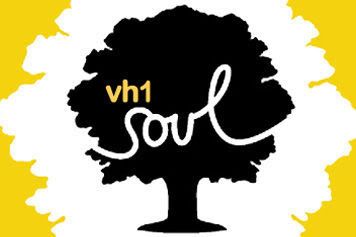
02. The waiting is over
03. When she comes to me
04. I am your love
05. Corner Store
06. When she comes...
07. My unceasing love
08. Lost in forever
09. The sooner you know
10. Open my heart
11. Mad Night

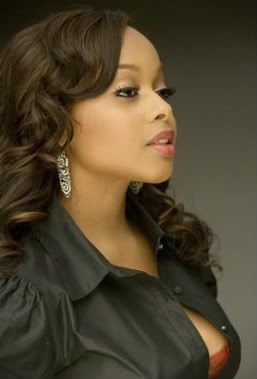 Okay, so I'm a HUGE fan of Chrisette Michele. I fell in love with her voice as soon as I heard it. When her album came out, I ran out and bought it(it's available here for download) and it was excellent. There isn't one bad song on the album. She has a GREAT voice, we haven't had an artist like her around in a while. But to get to the point, I'm upset. I don't like how she's being treated. First of all, the wrong singles were chosen. "If I Have My Way" and "Be OK" were good choices, but I think "Good Girl" and "Let's Rock" should've been released instead of "Best Of Me" and "Love Is You." "Love Is You" is a BEAUTIFUL song, but it should've been a treat that you get when you hear the album, you know what I mean? It wasn't single worthy. Second of all, what is she doing now? We should've heard some new material or news on a new album by now. It's not like she flopped or anything, her album went gold with very little promo. I don't know...maybe I'm just being a greedy, impatient fan. That wraps up my randomness, though.
Okay, so I'm a HUGE fan of Chrisette Michele. I fell in love with her voice as soon as I heard it. When her album came out, I ran out and bought it(it's available here for download) and it was excellent. There isn't one bad song on the album. She has a GREAT voice, we haven't had an artist like her around in a while. But to get to the point, I'm upset. I don't like how she's being treated. First of all, the wrong singles were chosen. "If I Have My Way" and "Be OK" were good choices, but I think "Good Girl" and "Let's Rock" should've been released instead of "Best Of Me" and "Love Is You." "Love Is You" is a BEAUTIFUL song, but it should've been a treat that you get when you hear the album, you know what I mean? It wasn't single worthy. Second of all, what is she doing now? We should've heard some new material or news on a new album by now. It's not like she flopped or anything, her album went gold with very little promo. I don't know...maybe I'm just being a greedy, impatient fan. That wraps up my randomness, though.



YahZarah broke into the music industry alongside Erykah Badu, whom she sung backup for on Mama's Gun, and in turn established herself as a solo artist in a similar vein, releasing a couple independent albums during the early 2000s. Born Dana Williams in Washington, D.C., YahZarah (whose name loosely means "Queen Mother is the brightest star" -- itself a tribute to her deceased grandmother from Ghana) was greatly influenced as a child by soul greats like Tina Turner, Prince, Chaka Khan, George Clinton, and Minnie Riperton, as well as the music of the church. She went on to study music at both the Duke Ellington School of Music and North Carolina Central University, and got her break into the industry alongside Badu, who featured Williams on the Mama's Gun album and tour. Following this experience, Williams took on the YahZarah moniker and went solo, releasing a pair of underground albums: Hear Me (released by Keo Music) and Blackstar (Three Keys). As a performer, she's shared the stage with such prominent artists as Stevie Wonder and Anita Baker, and she's opened shows for many more, including Earth, Wind & Fire, Musiq Soulchild, Floetry, Rahsann Paterson, and R. Kelly.

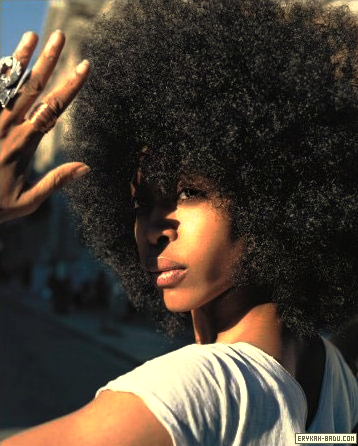

Lauryn Hill: [I wanted to] write songs that lyrically move me and have the integrity of reggae and the knock of hip-hop and the instrumentation of classic soul. [My engineer and I worked on] a sound that's raw. I like the rawness of you being able to hear the scratch in the vocals. I don't ever want that taken away. I don't like to use compressors and take away my textures, because I was raised on music that was recorded before technology advanced to the place where it could be smooth. I wanna hear that thickness of sound. You can't get that from a computer, because a computer's too perfect. But that human element, that's what makes the hair on the back of my neck stand up. I love that.
Nobles: There was a female group called Ex Factor signed to Arista and we did a song called "Ex Factor" for them. And then we started working on a song called "Loved Real Hard Once" — the title got switched [to "When It Hurts So Bad."] Those were the first two records that we worked on. We were making songs for other people and the songs started becoming too personal and we were like, wait a minute, this is your story. We were having a conversation about her relationship in the little studio in her attic in South Orange, and that's how "I Used to Love Him" came about. It was about 'Clef.
John Legend: I was in the spring of my junior year at University of Pennsylvania. A friend invited me to give her a ride to Lauryn's house in Jersey. Lauryn was working "Everything Is Everything." I sang and played a couple songs for her. She asked me to play piano on the track. She guided me a little bit but it was pretty simple because I was playing along with a string part that was already there. I became known around campus as the dude who played on "Everything Is Everything." It was my little claim to fame at Penn for my whole senior year.
Commissioner Gordon: "Can't Take My Eyes Off of You" was never meant to be a commercial single. It was originally recorded for [the soundtrack for the movie] Conspiracy Theory and ended up on the radio, became popular, and that's how it ended became a bonus track. She called me and said she was behind and had to get it done. She didn't know how the arrangement of the song went, so we went and got a copy from Coconuts or Sam Goody. I had a little one-room 16-track studio in my apartment in Jersey. Lauryn was eight months pregnant, laying on her back on the floor, half asleep, holding a handheld mike. She did all of those vocals off the top of her head pretty much in one take, with the beat box and all of that. That blew me away.
Legend: Lauryn had that blend of toughness and soulfulness, melody and swagger. She did it better than anybody still has done it. People are still trying to capture that moment. Jazmine Sullivan's song that's out now ["Need U Bad"] sounds eerily similar to Lauryn.
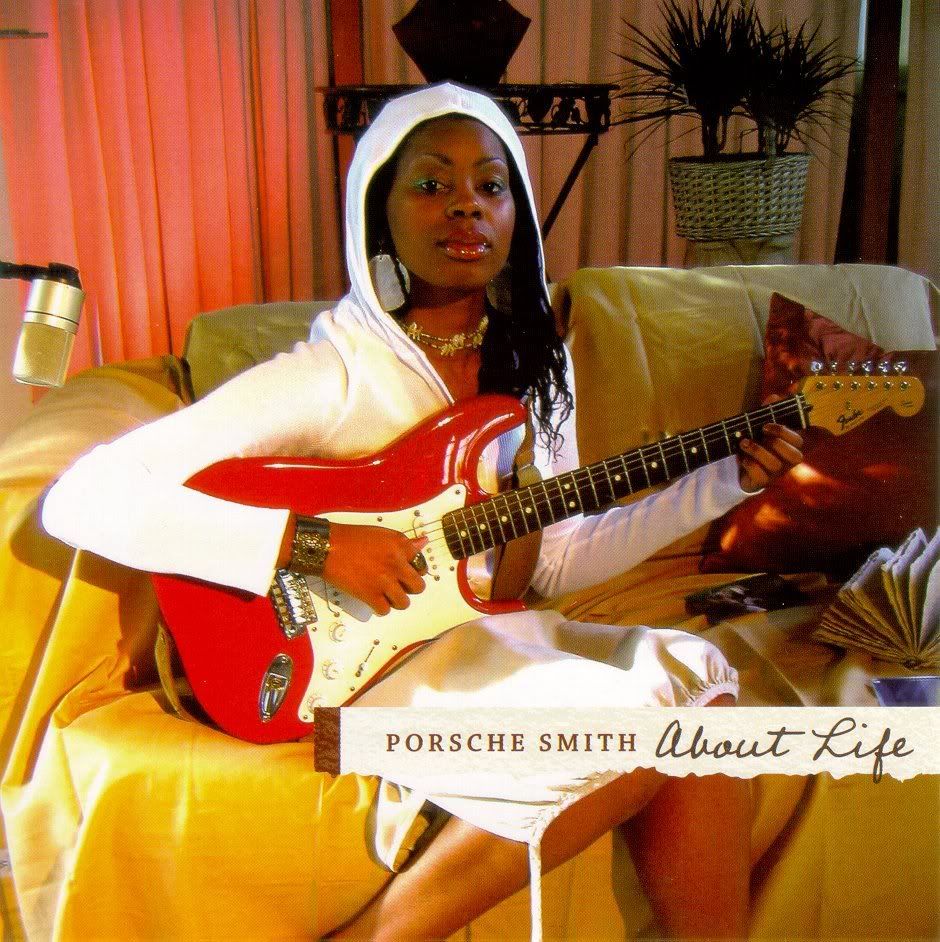




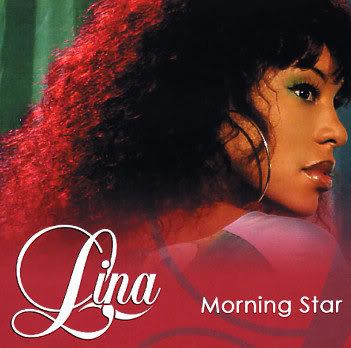


Nina’s musical studies began with piano lessons at age seven and continued through her high school years. Nina’s musical tastes were a bit more eclectic. Influenced by artists like Antonio Carlos Jobim, Miles Davis, Keith Jarrett, Anita Baker, Sade, Fiona Apple, Stevie Wonder and of course her namesake Nina Simone, she abandoned the typical teenager’s playlist for something with a little more depth and musicality.



Nu-Soul: Tell me about your background and how you got into music.
Erika: I came out as a young child being very into the arts and being creative. My dad’s brother is a musician and I grew up in that environment. It wasn’t encouraged by my parents with my father seeing my uncle’s struggle so I was a closet artist for a long time. It wasn’t until college that I had a breakdown and told my parents whether they supported me or not this is what I had to do. My childhood friend, who is Alicia Keys, had gotten a deal when she was 16 and I didn’t want to say anything because I didn’t want her to think because she got a record deal that suddenly I wanted to be a singer even though that was my dream. My uncle called her and told her I was really talented and she told me to come to New York. Every break I had from school, I would fly up there and we would work on music. Her and Kerry helped me with my demo and started developing me. At that time, I also I wrote with her on “A Woman’s Worth.”
Nu-Soul: How did you end up working with Alicia on her tour and what was that like?
Erika: Alicia asked me to go with her for a couple weeks and the road manager at the time had to leave so I said I would do the job. I ended up taking on the road manager position for 2 years, which was very unexpected. I was managing the whole tour and was fresh out of school with no clue. By the end, Alicia was happy with my performance and so was her manager. I was hired as her day-to-day manager with the idea that I would put together a team and leave at some point. I helped her build that team which took another 2 years. I gained a lot of experience and was able to spend four incredible years with my best friend and damn near get a PHD in the music business.
Nu-Soul: How were you able to rediscover Erika after that?
Erika: I took a trip to Spain for 6 weeks where I lived in a tent and was like a gypsy girl roaming around playing my guitar. That allowed me to connect and remember that I was talented and business savvy but I was an artist and that is what I was meant to do. One day I just called in and said I am not coming to work today and I am done. It was that moment where I knew it was okay to leave.
Nu-Soul: How did you link with O’mas and what role did he play in creating the album, Rosegarden?
Erika: I went to California for my friend Laurie Ann Gibson who was casting for the group SA-RA who had just been signed by Kanye West. O’mas and I really clicked and we had very similar tastes in music. I told him that I wanted to cut a record and he was into it. We went in and cut a song and it was like magic. From there, it was a no brainer and that is what we did. We did the whole album together.
Nu-Soul: What is the concept behind the single, “Rosegarden”?
Erika: It’s funny but Alicia told me I should make a song called “Rosegarden.” When we started making the track we knew that was it. For me growing up in the eighties and nineties, you started seeing a lot more booties hanging out and women were being portrayed in this sort of oversexed and almost disrespectful way. I didn’t feel empowered by some of the imagery and lyrics. I am very connected to my femininity and sexuality and it’s something I think is beautiful and I am proud of. I think women are beautiful and intimacy is almost next to Godliness. Like Minnie Ripperton saying will you come inside me. It doesn’t get anymore blatant than that but you wanted to eat it up. I wanted to bring it back there and say it’s okay to express it but let’s bring it back to its purity.
Nu-Soul: Do you think it is a challenge because you are so in touch with your sexual side?
Erika: It’s interesting because sex sells. I am not going to hide in rebellion because that is what is out there. I am going to embrace who I am and put myself out there in a way I’m comfortable. I don’t feel pressure to be like that. It’s not natural for me.
erika2.jpgNu-Soul: Where do you get your inspiration for your lyrics and song concepts?
Erika: Lyrically, it’s really autobiographical. Life is so full from personal relationships and social and political issues. There is enough drama to go around so I am never at a lack for subject. My mind always runs rampant. (Laughing)
Nu-Soul: How would you describe your sound to someone that has never heard you?
Erika: It’s really an eclectic album. It’s a very cynical corporate music world. Everyone is like what is this. They want to tell me it’s a straight up soul record because I have written with Alicia but it’s not that. I’m an interracial girl and I never felt like I was one thing or another. I wanted to make a mixture of one thing because that is kind of how I feel in the world. I basically synergized the music I love the most and made it into a record. It’s a little bit of everything. The approach I took with this record was complete freedom.
Nu-Soul: Do you think you will ever take the major label route?
Erika: I wanted to do this a grassroots way so if someone caught an interest, they would know what they were getting and wouldn’t try to make me into something that I’m not. It would have to be the right situation. The whole label thing is very sketchy right now.
Nu-Soul: Tell me about Infinity Le Monde.
Erika: That is the company that O’mas and I started to present this collaboration. We wanted to show the infinite possibilities of what it could be and not allow ourselves to be bound by what the commercial standards are telling us it has to be. We created this for other artists that we feel share the same thing. It’s about artist empowerment, creativity, and expression. We want to give artists a platform to get out their music in a way that they may not be able to in that confined major label setting. O’mas is doing his solo record through the company and we have about three or four people that are sort of in the wings. Since we are independent, we don’t have a staff or anything. We have to focus on one project at a time so people know when we release a record it will be something that is unique and of quality.
Nu-Soul: What is it like being on tour with Alicia and what can we expect from an Erike Rose show?
Erika: It’s so much better! I see people walking around stone faced and I am like, that is how I used to look! It’s nice to be on this side. I go on fairly early so it’s not as full as I like but its great fun to work the stage and connect with all those people in there. I am very much into live instrumentation so unfortunately I don’t play with a band but O’mas is up there playing guitar. I am paying my dues just like everyone else had to do. (Laughing) I love every minute of it. I strongly advise people to catch me at my smaller shows.
Nu-Soul: Does Alicia Keys ever encourage you?
Erika: She does and she believes in me and tells me to just keep trucking forward. She has been such a living example of that. It seemed like she had a great deal at 16 but she still struggled. That was another great lesson I learned. I thought I would just make a record, put out a video and that would be it! After going through that with her I realized that was not what I wanted but I really learned what it takes. She busts her ass all day every day. I have to kick her to go on vacation. But I knew what I was getting myself into. It’s an uphill battle. I know this is all a part of the path and journey. I decorate houses during the day all day and go to the studio at night. So, it’s a hustle.
Nu-Soul: If I wrote a movie about your life what would the theme song be and who would play you?
Erika: Man these questions! I am bad with some of these. (Laughing). Can I play me? I don’t know who would play me. (Laughing) Although, I really like Zoë Saldana and Paula Patton. They are so adorable. My life at such a young age has changed drastically in some periods. There are so many different movements. It would have to be a symphony or classical piece like a Mozart or Bach.
Nu-Soul: Are you working on a new album?
Erika: I am. Rosegarden hasn’t quite seen the light of day like I’ve wanted but I’m always working on new material.
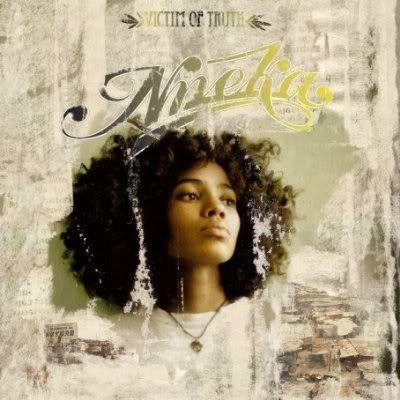
Born with an ethereal voice that transcends space and time, 23 year old singer-songwriter Valencia Robinson is one of those rare talents that emerge once in a lifetime to leave a lasting impression in this world.

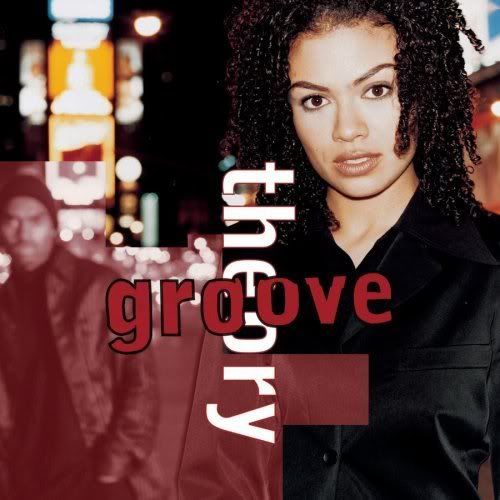
This voice is diverse from strong & smooth 2 sexual & seductive. The 1st seven songs are a "7 Song Sensual Suite" written & produced by Leon Ware, the Father of Sensuality himself. Guest saxophonist Gerald Albright lends his breathe & blends right on in. Enjoy

DOWNLOAD: http://sharebee.com/b6425745


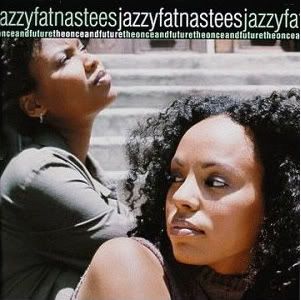
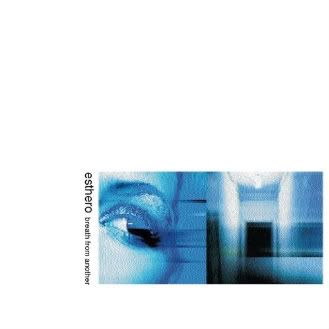
 Here is Goapele's newest song, it's been out since the beginning of July. She hasn't come out with a new song since '05 so I was excited when I saw this on her MySpace. Well I finally got around to ripping it, so here it is.
Here is Goapele's newest song, it's been out since the beginning of July. She hasn't come out with a new song since '05 so I was excited when I saw this on her MySpace. Well I finally got around to ripping it, so here it is.
Soul singer and arranger Isaac Hayes, who won Grammy awards and an Oscar for the theme from the 1971 action film "Shaft," has died, sheriff's officials in Memphis, Tennessee, reported Sunday.Relatives found Hayes, 65, unconscious in his home next to a still-running treadmill, said Steve Shular, a spokesman for the Shelby County Sheriff's Department.
Paramedics attempted to revive him and took him to a hospital, where he was pronounced dead shortly after 2 p.m., the sheriff's department said.
No foul play is suspected, the agency said in a written statement.
Hayes was a longtime songwriter and arranger for Stax Records in Memphis, playing in the studio's backup band and crafting tunes for artists such as Otis Redding and Sam and Dave in the 1960s.
He released his first solo album in 1967, and his 1969 follow-up, "Hot Buttered Soul," became a platinum hit.
In 1971, the theme from "Shaft" topped the Billboard Hot 100 for two weeks and won an Academy Award for best original theme song. The song and the movie score also won Grammy awards for best original score and movie theme.
Hayes won a third Grammy for pop instrumental performance with the title track to his 1972 "Black Moses" album.
From the late 1990s through 2006, Hayes provided the voice of "Chef" for Comedy Central's raunchy animated series "South Park," as well as numerous songs.
The role introduced him to a new generation of fans, but he left after the show lampooned his own religion, the Church of Scientology.
He was inducted into the Rock and Roll Hall of Fame in 2002
SOURCE: http://www.cnn.com/
